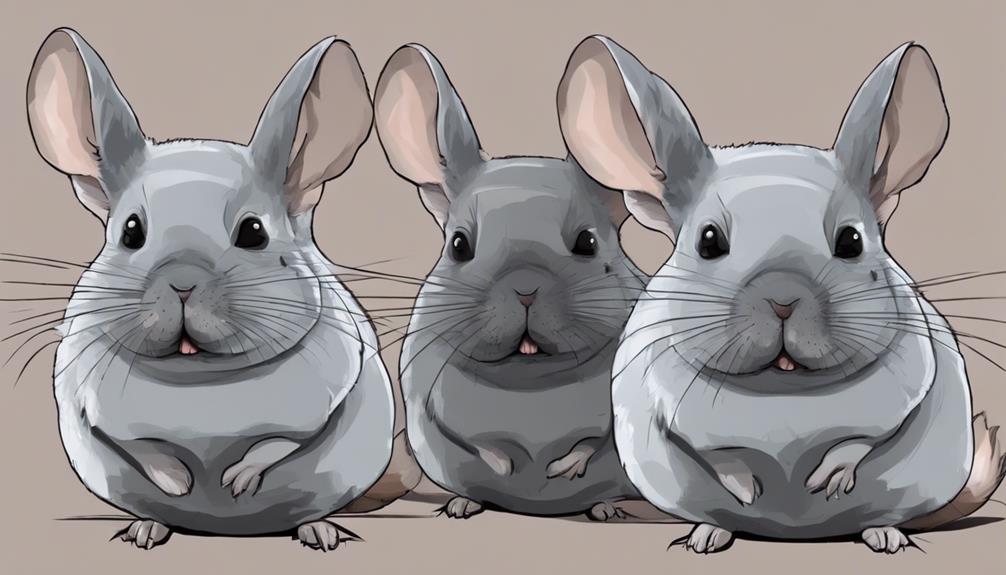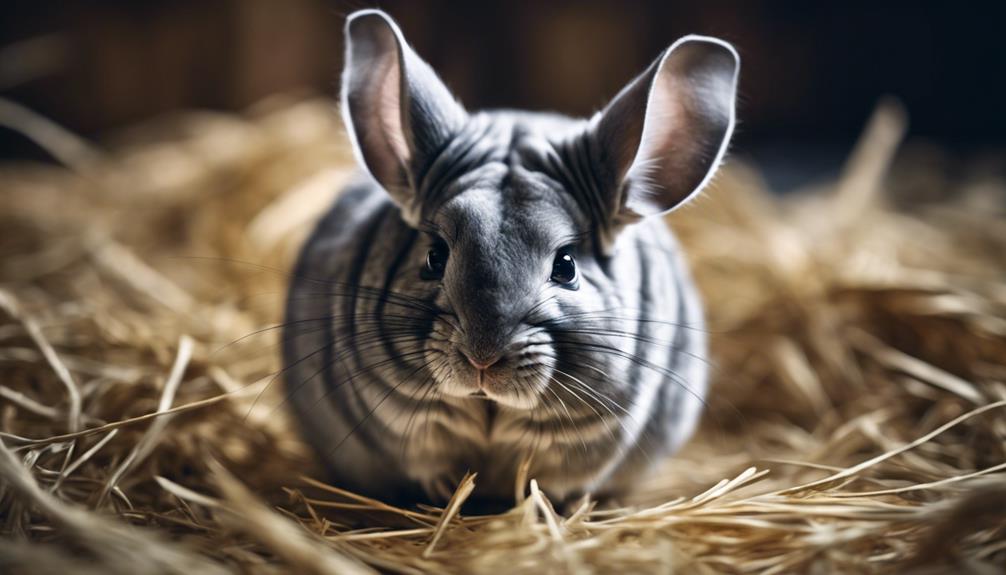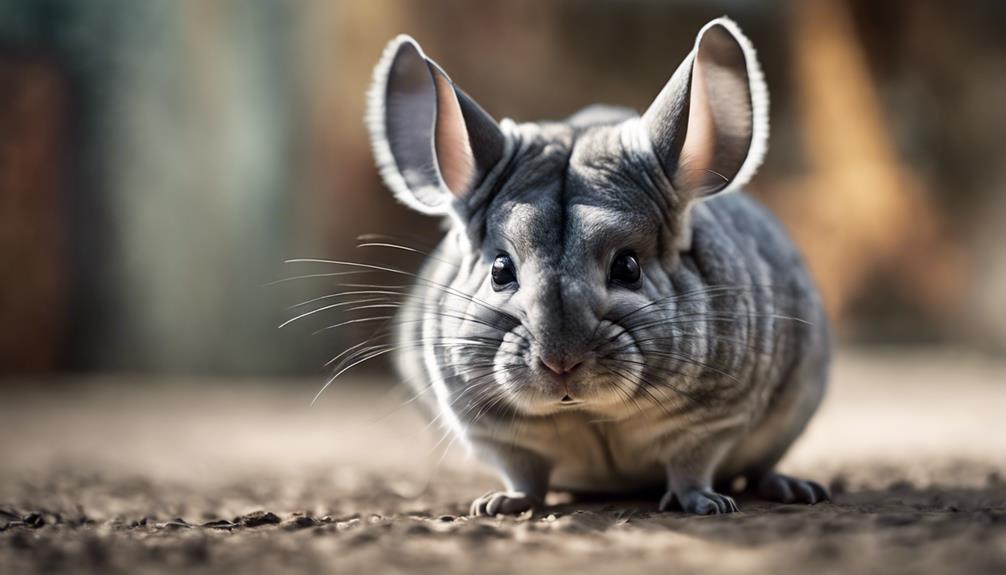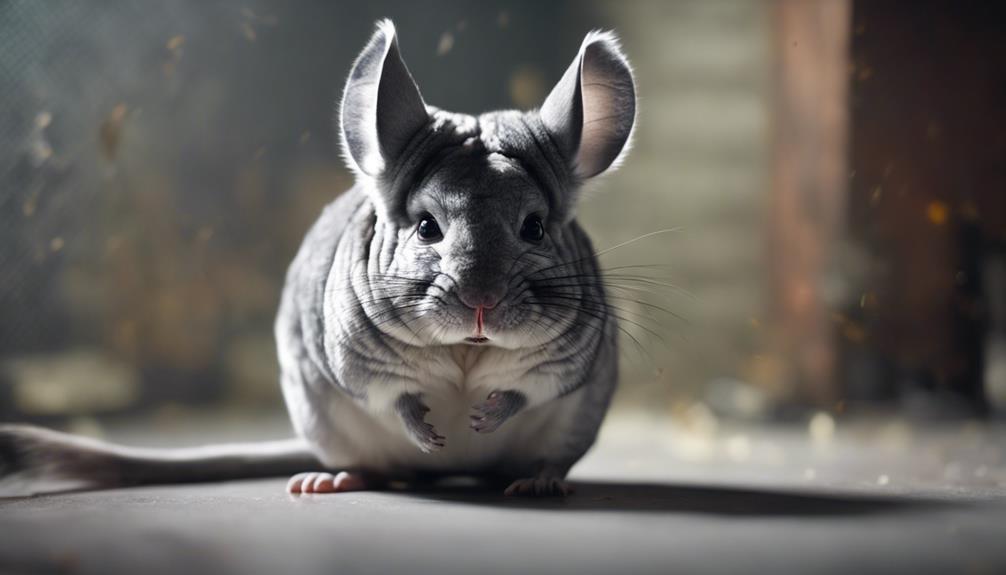When Is It an Emergency? Chinchilla Health Red Flags

Chinchillas are delicate animals that can quickly deteriorate if they become sick. It’s important to recognize the signs of a health emergency so you can act fast to protect your pet’s well-being. Some common signs of a chinchilla health emergency include difficulty breathing, lethargy, loss of appetite, diarrhea, seizures, and unusual behavior. If you notice any of these symptoms, contact your veterinarian immediately. It’s always better to be safe than sorry when it comes to your chinchilla’s health. Remember, prompt medical attention can make all the difference in a crisis.
Understanding the signs of a health emergency and knowing when to seek help can save your chinchilla’s life. Regular check-ups and attentive care are essential for maintaining your pet’s health and well-being. By staying informed and prepared, you can ensure that your chinchilla receives the best possible care in case of an emergency.
Behavioral Changes
When observing chinchillas for potential health issues, it’s crucial to pay close attention to any sudden or unusual behavioral changes. Stress indicators in chinchillas can manifest in various ways, affecting their social interactions and overall well-being. These small, delicate creatures are highly sensitive to their environment, making it essential for owners to be vigilant.
Signs of stress might include excessive hiding, aggression towards cage mates, or a sudden decrease in activity levels. Chinchillas are social animals by nature, so any withdrawal from normal social interactions could be a red flag. They thrive on companionship and play, so a chinchilla that suddenly becomes solitary or disinterested in its surroundings may be experiencing distress.
Understanding the typical behaviors of chinchillas and noting any deviations promptly can help in addressing potential health issues before they escalate. Owners should strive to create a calm and enriching environment for their chinchillas to promote positive social interactions and overall well-being.
Loss of Appetite

Chinchillas are known to be meticulous eaters, so a loss of appetite can be a significant concern for their health. Weight loss potential is high if a chinchilla refuses food for an extended period.
When faced with this issue, dietary changes may be necessary to entice the chinchilla to eat and prevent further complications.
Weight Loss Potential
In cases of weight loss potential in chinchillas, it’s crucial to monitor their appetite closely for any signs of decreased intake. Weight loss in chinchillas can be indicative of underlying issues such as nutritional deficiencies or medical conditions.
Nutritional deficiencies, such as lack of essential vitamins and minerals in their diet, can lead to weight loss if not addressed promptly. Additionally, various medical conditions, including dental problems or gastrointestinal issues, may also result in reduced appetite and subsequent weight loss in chinchillas.
Observing changes in their eating habits and seeking veterinary assistance at the first sign of weight loss can help prevent further complications and ensure the well-being of these small pets.
Dietary Changes Required
Monitoring chinchillas’ food intake closely is essential when addressing dietary changes required due to a loss of appetite. Nutritional adjustments play a crucial role in ensuring the health and well-being of these small pets. When faced with a chinchilla that has lost its appetite, consider the following:
- Gradual Diet Transitions: Slowly introduce new foods to entice the chinchilla to eat.
- Offering Fresh Hay: Ensure a constant supply of fresh hay to promote digestion.
- Consulting a Vet: Seek professional advice to rule out any underlying health issues.
- Hydration: Ensure the chinchilla is drinking enough water to prevent dehydration.
- Balanced Diet: Focus on providing a balanced diet to meet their specific dietary needs.
Labored Breathing

Labored breathing in chinchillas can be a serious red flag indicating distress or an underlying health issue. When a chinchilla breathes rapidly or struggles to breathe, it’s crucial to seek immediate veterinary attention.
Labored breathing should never be ignored, as prompt intervention can make a significant difference in the chinchilla’s health and well-being.
Rapid Breathing Signals Distress
Experiencing rapid breathing can serve as a clear indication that a chinchilla is in distress and may be exhibiting labored breathing. When a chinchilla displays rapid breathing, it’s essential to take immediate action to address the underlying issue.
Here are some emotional bullet points to consider:
- Fear: Witnessing your chinchilla struggle to breathe can be terrifying.
- Helplessness: Feeling unable to alleviate your pet’s discomfort is distressing.
- Empathy: Understanding your chinchilla’s suffering can evoke deep empathy.
- Urgency: The need for quick intervention to help your pet can create a sense of urgency.
- Hope: Despite the worry, holding onto hope for your chinchilla’s recovery is crucial.
Seek Vet Immediately
At the first sign of rapid breathing in your chinchilla, immediate veterinary attention is crucial to address any potential underlying issues causing distress. Labored breathing in chinchillas could signal an emergency situation that requires prompt intervention to prevent further complications.
When identifying this symptom, observe if your chinchilla is struggling to breathe, gasping for air, or showing signs of respiratory distress. Chinchillas are known for hiding illness well, so any noticeable changes in their breathing patterns should be taken seriously.
Seeking vet care immediately is vital to ensure your chinchilla receives the appropriate treatment and care. Remember, early detection and intervention can significantly improve the chances of a positive outcome for your furry friend.
Lethargy and Weakness

When chinchillas exhibit lethargy and weakness, it may indicate potential underlying health issues that require prompt attention from a veterinarian specializing in exotic pets. These signs can be concerning as they often suggest a significant health problem affecting your chinchilla’s overall well-being.
Here are some key points to consider:
- Decreased Energy Levels: A noticeable lack of activity or interest in usual playtime could be a red flag.
- Signs of Dehydration: Sunken eyes, dry gums, or reduced skin elasticity are signs of dehydration that may accompany lethargy.
- Loss of Muscle Strength: Weakness in your chinchilla’s muscles may be evident, hindering their usual movements.
- Lack of Coordination: Difficulty in walking or balancing may indicate neurological issues or other serious conditions.
- Overall Dullness: A general lack of alertness or responsiveness to stimuli can also be a worrying symptom.
If you observe these signs in your chinchilla, seeking veterinary care promptly is crucial to diagnose and address any potential health concerns.
Severe Diarrhea or Constipation
If your chinchilla develops severe diarrhea or constipation, immediate veterinary attention is essential to address the underlying cause and prevent potential complications.
Diarrhea in chinchillas can lead to dehydration rapidly, emphasizing the importance of hydration management. On the other hand, constipation can be a sign of an obstruction in the digestive system, hindering the passage of food and waste. Both conditions can be indicative of underlying health issues, such as infections, dietary problems, or organ dysfunction.
When facing severe diarrhea, it’s crucial to monitor your chinchilla’s fluid intake closely. Encouraging them to drink water or providing oral rehydration solutions can help maintain their hydration levels. For constipation, the veterinarian may need to perform diagnostic tests to identify the cause and recommend appropriate treatment.
Ensuring proper digestive health is vital for your chinchilla’s overall well-being. Timely intervention and a focus on hydration and digestive health can help your chinchilla recover and prevent further complications.
Bleeding or Injury

In cases of bleeding or injury in chinchillas, prompt evaluation by a veterinarian is crucial to determine the extent of the issue and provide necessary care. Chinchillas are delicate creatures, and any sign of bleeding or injury shouldn’t be taken lightly. Here are some important points to consider when faced with such situations:
- Stay Calm: Your chinchilla may be in pain, but maintaining a calm demeanor will help both you and your pet.
- Apply First Aid: If there’s visible bleeding, apply gentle pressure with a clean cloth to stop the bleeding.
- Contact a Veterinarian Immediately: Even if the bleeding seems to have stopped, it’s essential to seek professional help promptly.
- Avoid Home Remedies: While you may want to help, some home remedies can do more harm than good. Always defer to a professional.
- Emergency Care is Vital: Quick action can make a significant difference in the outcome for your chinchilla.
Eye or Dental Problems

Detecting early signs of eye or dental problems in chinchillas requires vigilant observation and regular veterinary check-ups. When it comes to eye issues, chinchilla owners should watch out for symptoms like eye discharge, which can indicate infections or other underlying problems. Additionally, dental problems such as tooth pain can severely impact a chinchilla’s overall health and well-being. Regular dental check-ups are crucial for maintaining proper dental hygiene in these small animals.
To help chinchilla owners better understand how to identify and address eye and dental problems, the table below outlines key red flags to watch for:
| Eye Problems | Dental Problems |
|---|---|
| – Eye discharge | – Loss of appetite |
| – Redness or swelling | – Drooling or pawing at the mouth |
| – Excessive tearing | – Weight loss or difficulty eating |
| – Squinting or closing one eye | – Grinding teeth |
| – Cloudiness in the eye | – Bad breath |
Frequently Asked Questions
Can Chinchillas Vomit?
Chinchillas cannot vomit due to their unique digestive system. While this may seem like a superpower, it can actually lead to serious health issues if they ingest something harmful. Always monitor their diet closely.
How Often Should Chinchillas Be Groomed?
Chinchillas should be groomed regularly to maintain their hygiene and prevent fur mats. Owners should brush their pets at least once a week, especially during shedding seasons, to keep their coat in good condition.
What Are Some Common Causes of Skin Issues in Chinchillas?
Skin issues in chinchillas can stem from various culprits. Parasite infestations, allergies, fungal infections, and poor diet can lead to discomfort. Regular monitoring and a vet’s guidance are crucial to address these concerns promptly.
Are There Any Specific Plants or Foods That Are Toxic to Chinchillas?
Toxic plants and foods pose serious risks to chinchillas. Avoid feeding them avocado, chocolate, onions, or caffeine. Opt for safe treats like hay, leafy greens, and small amounts of fruit. Always research before introducing new foods to their diet.
How Can Chinchilla Owners Prevent Dental Issues in Their Pets?
Chinchilla owners can ensure good dental hygiene through preventive care. Providing chew toys and a balanced diet with adequate roughage can help prevent dental issues. Regular check-ups with a veterinarian can also catch any problems early on.











